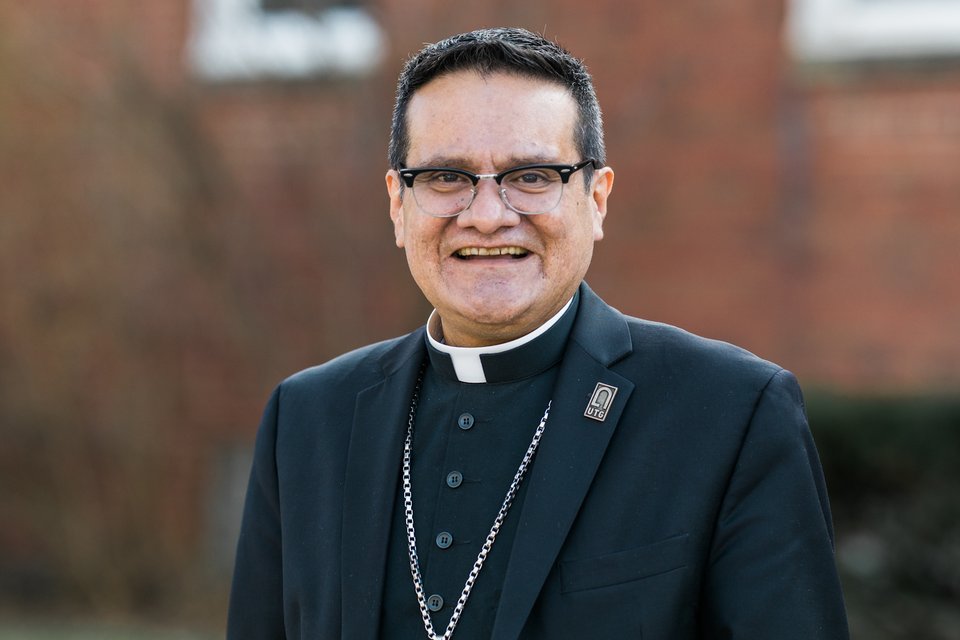Arizona diocese has seen increase in seminarians, investment in campus ministry programs at University of Arizona
DETROIT — Archbishop-designate Edward J. Weisenburger seems to know that in order for the Church to flourish, the seeds of faith must be planted early.
The Diocese of Tucson, where Detroit's future archbishop has served since 2017, has seen tremendous growth in youth programs, campus ministry at the University of Arizona, and a recent increase in seminarians.
On Feb. 11, Pope Francis appointed Archbishop-designate Weisenburger to succeed Archbishop Allen H. Vigneron as chief shepherd of the Archdiocese of Detroit. He will be installed March 18.
Those who serve with Archbishop-designate Weisenburger credit his personal dedication to engaging with young people, particularly through his pastoral visits across the vast, 42,707-square-mile Tucson diocese, with fostering a vibrant culture of faith.
Msgr. Greg Adolf, pastor of St. Andrew the Apostle Parish in Sierra Vista, Arizona, and St. Patrick Parish in Bisbee, near the U.S.-Mexico border, said Archbishop-designate Weisenburger's care and concern for young people is especially evident during confirmations and youth events. Each time he makes a visit to the peripheries of the diocese, he makes a point to greet the young people in the parish, encouraging them to cultivate a deep, personal relationship with Christ, Msgr. Adolf said.
“He really engaged with young people as to what God’s dream for their life might be; you know your dream for your life, but what is God’s dream for your life?” Msgr. Adolf said in a phone call with Detroit Catholic. “He always said this line: ‘People will tell you you’re the future of the Church, but I’m telling you you’re not the future of the Church. You’re the now of the church. You have been confirmed. You’ve been anointed; you’re equipped to go and work with God. You’re not the future, you’re the now.'”
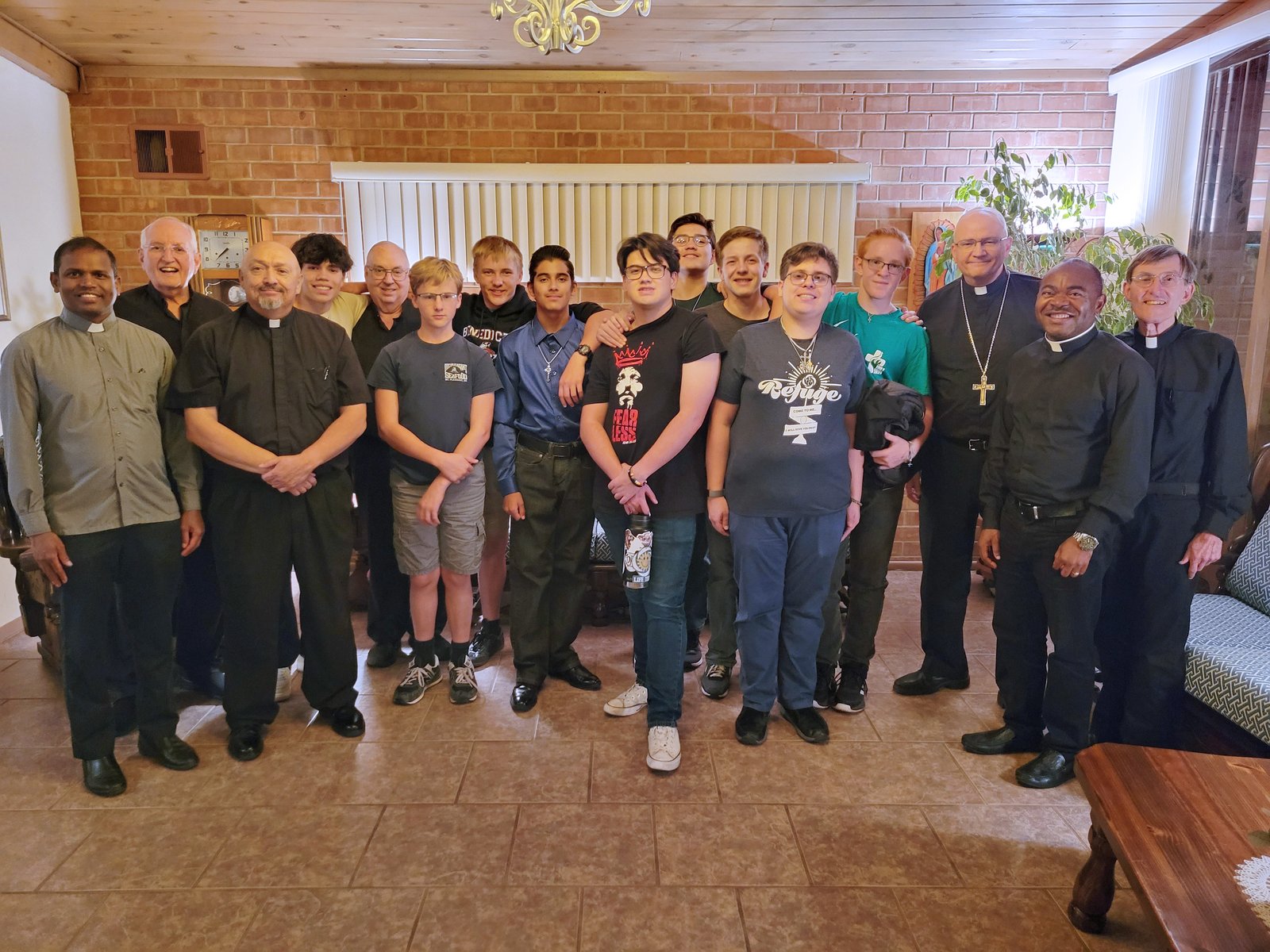
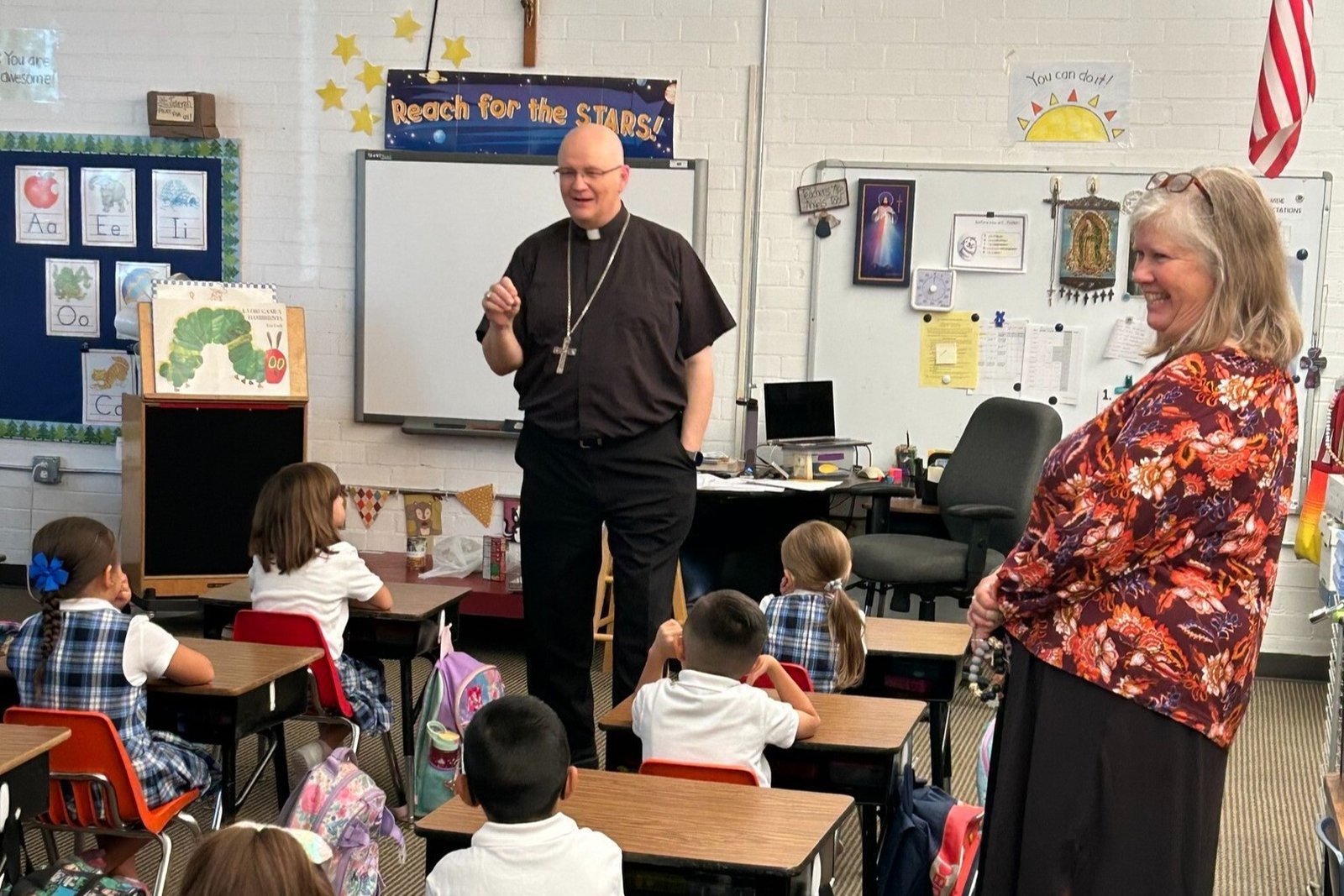
Archbishop-designate Weisenburger has a preaching style that appeals to young people because it is direct and usually leads to a call to action, said Fr. Emanuel "Manu" Franco-Gomez, O.Carm., director of youth ministry for the Diocese of Tucson.
"He speaks really well to different communities and ages, but he's really good at talking to young people," Fr. Franco-Gomez said. "He often connects the Gospel with this idea of discipleship and being hands on for the works of the kingdom of God. He often says we need to get to work, be out there, not to be afraid to participate."
When Archbishop-designate Weisenburger speaks with directors of religious education and youth ministers, he thanks them for their ministry and often asks for feedback on how best to spread the Gospel to young people in the diocese, Fr. Franco-Gomez said.
"Something that comes across really well when he speaks to adults who minister to kids is how grateful he is for their commitment because he understands that working with youth is challenging sometimes," Fr. Franco-Gomez said. "It takes time to build up projects and get participation. He appreciates people as a community collectively, but he also understands the person as an individual.
"What I would say to the people of Detroit is listen to him, because he is going to listen to you," Fr. Franco-Gomez added.
The Diocese of Tucson has seen an increase in young men discerning a priestly vocation, Msgr. Adolf said, thanks in part to Archbishop-designate Weisenburger's active involvement with parishes throughout the diocese, hosting information nights and discernment retreats.
“He's very much worked on vocations,” Msgr. Adolf said. “We’ve started a group with young men who may have some interest in the priesthood called ‘Seekers.’ I asked him if he’d come down to meet with them, and he said he’d be glad to do that. He sat with them, ate with them, answered their questions, and instructed them on discernment.”
Fr. Alan Valencia, director of vocations for the Diocese of Tucson and rector of St. Augustine Cathedral in Tucson, said Archbishop-designate Weisenburger has instilled a diocesan-wide culture of praying for vocations and encouraging young men to ask what God has planned for their lives.
"Bishop Weisenburger has fostered a culture where it's not just the priest, but everyone participating in the shared responsibility and duty to encourage vocations," Fr. Valencia said. "He brings in all the priests, all the principals and teachers at our Catholics schools, all the catechists and youth leaders and volunteers from the parishes to share in this role of promoting vocations to religious life and to the priesthood."
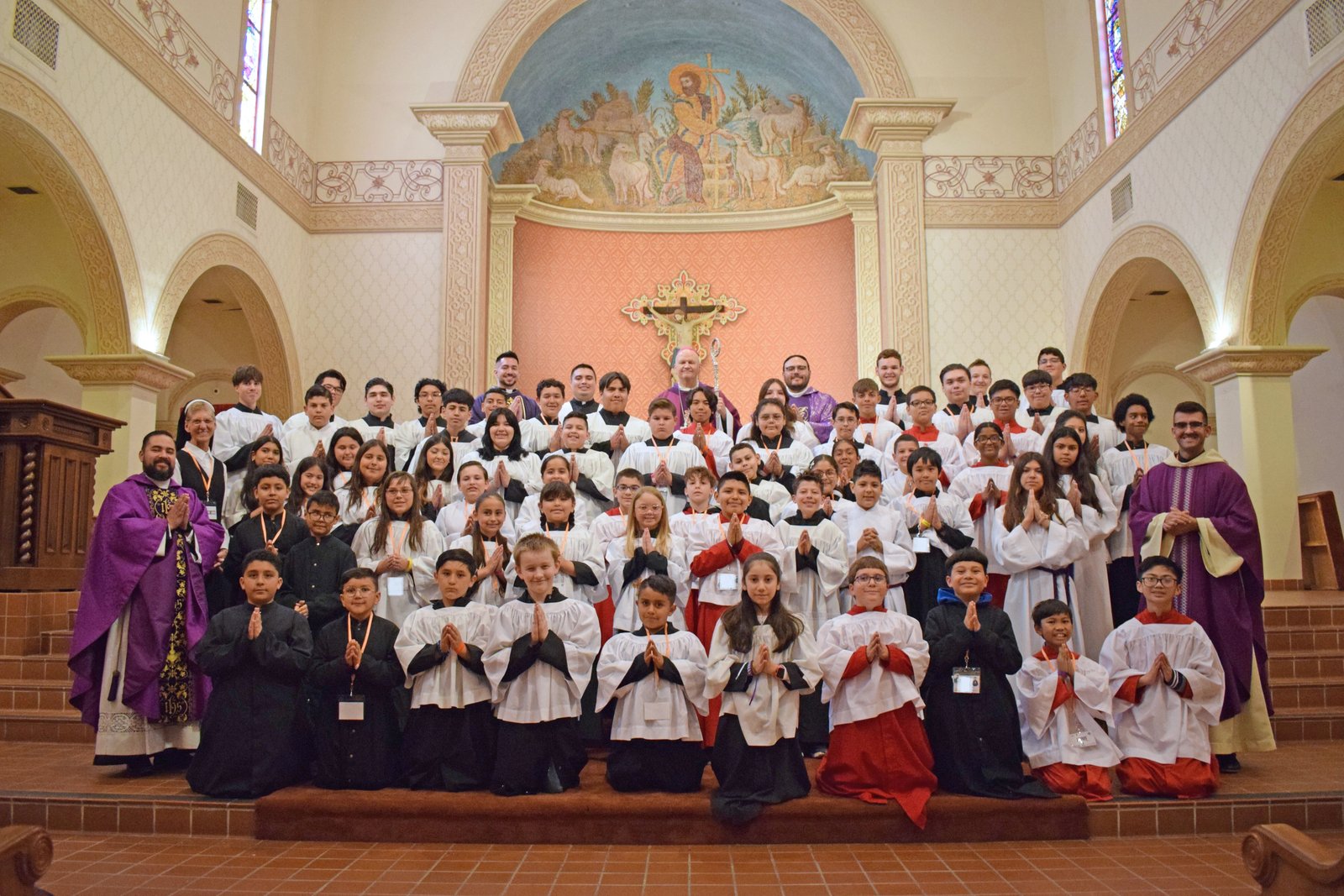
Fr. Valencia said it is providential that Archbishop-designate Weisenburger was introduced as the next archbishop of Detroit at Sacred Heart Major Seminary, considering how much Archbishop-designate Weisenburger cares for seminarians and newly ordained priests. Before the press conference, he spent about 30 minutes praying, chatting with and encouraging Detroit's seminarians.
The Diocese of Tucson sends its seminarians out of state to Conception Abbey in Missouri, Mount Angel Seminary in Oregon, St. John's Seminary in Camarillo, California, Sacred Heart Seminary in Wisconsin, and Mundelein Seminary in Illinois, depending on the seminarians' prior education and formation path.
Having Sacred Heart Major Seminary "right in his backyard" in Detroit will be something Archbishop-designate Weisenburger will very much enjoy, Fr. Valencia said.
"I think he's very inspired about being close to the seminary and making sure that the formation of the future clergy continues to be part of his episcopacy," Fr. Valencia said. "We have a program he started in Tucson for the newly ordained. It's a mentoring program with all the priests who have been ordained five years ago or less, where he meets with them for several days about three times a year. It's his way of making himself available to continue that formation even after ordination."
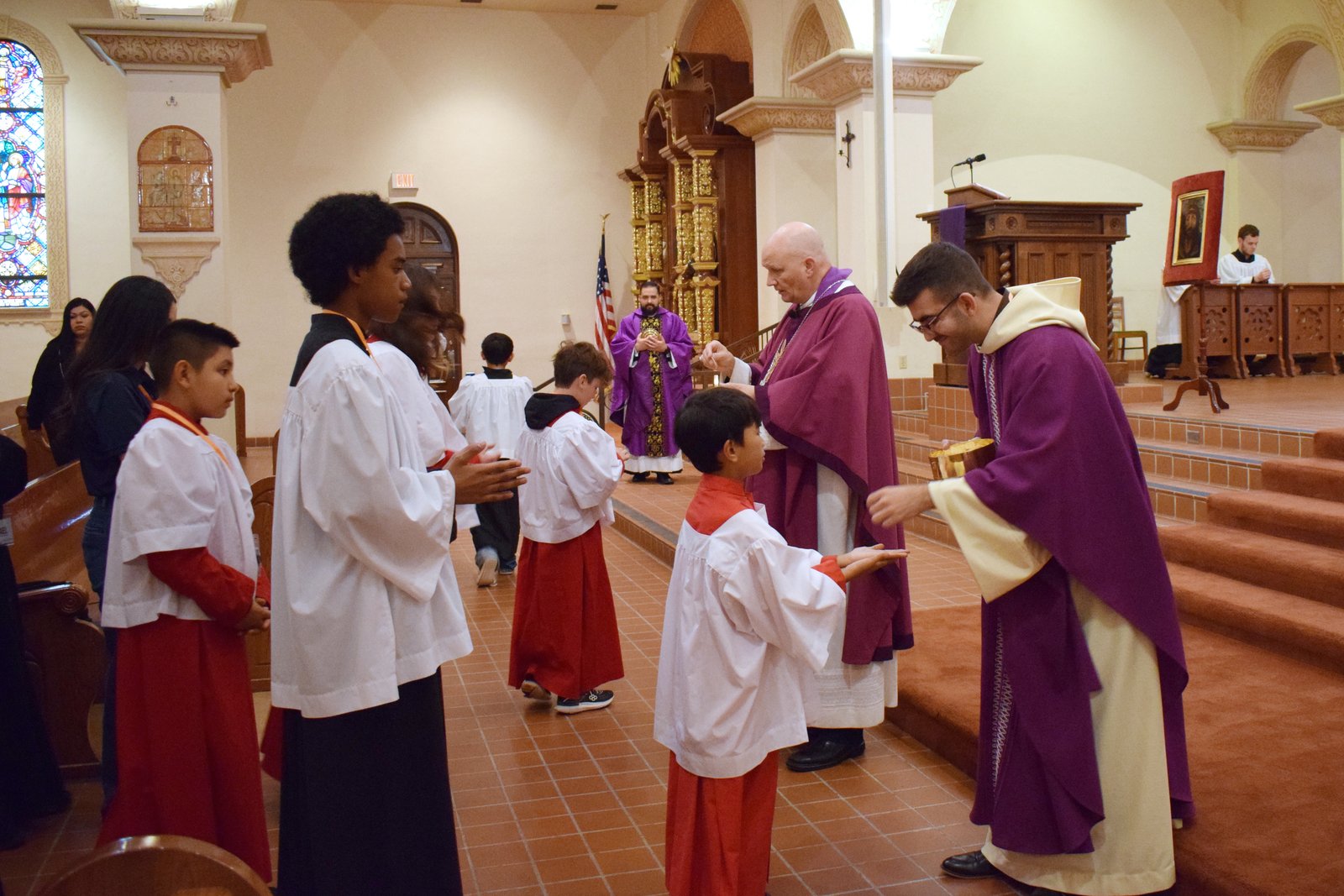
Archbishop-designate Weisenburger's commitment to cultivating the faith of young people also extends to the University of Arizona’s main campus in Tucson. Elizabeth Bollinger, executive director of the Catholic Foundation for the Diocese of Tucson, said the diocese and the foundation are working to boost support for campus ministry, particularly through the university's Newman Center.
"Bishop Weisenburger very much sees young people as an important area for the Church, especially when it comes to vocations," Bollinger said. "Every year, he seems to double the number of seminarians in our diocese in the last couple of years.”
The Catholic Foundation is working on a campaign for a new Newman Center at the University of Arizona, Bollinger said, just one example of Archbishop-designate Weisenburger's care and concern for young people during a time when many are living away from their parents for the first time and may be questioning their faith.
Archbishop-designate Weisenburger's predecessor, Bishop Gerald F. Kicanas, who served as Tucson's bishop from 2003 to 2017, said his successor's heart for building up the Church through the next generation will bless Detroit in the years to come.
“He wanted very much and had been working very hard to prepare to renovate and completely restore the chapel and the offices and classrooms of the campus ministry program at the university; that was very dear to his heart,” Bishop Kicanas said of the Newman Center project.
“From the time he arrived in the diocese, Bishop Weisenburger has always had a deep interest in helping young people to see Christ as a friend, and faith as something that enhances and blesses one’s life,” he added.
Copy Permalink
Bishops Episcopal transition




